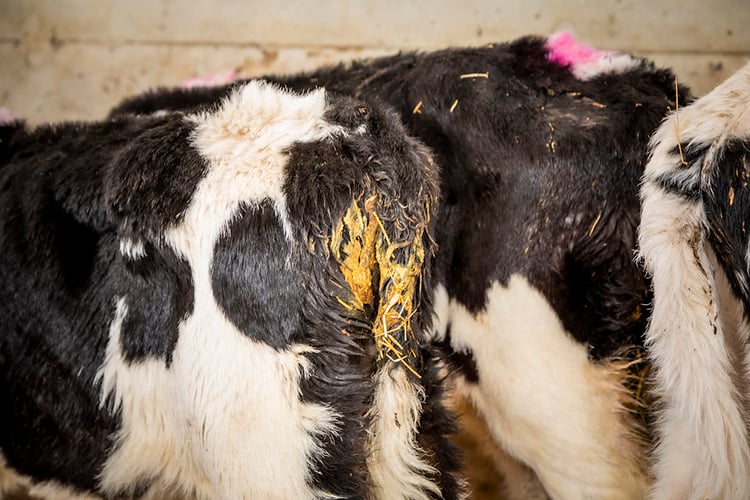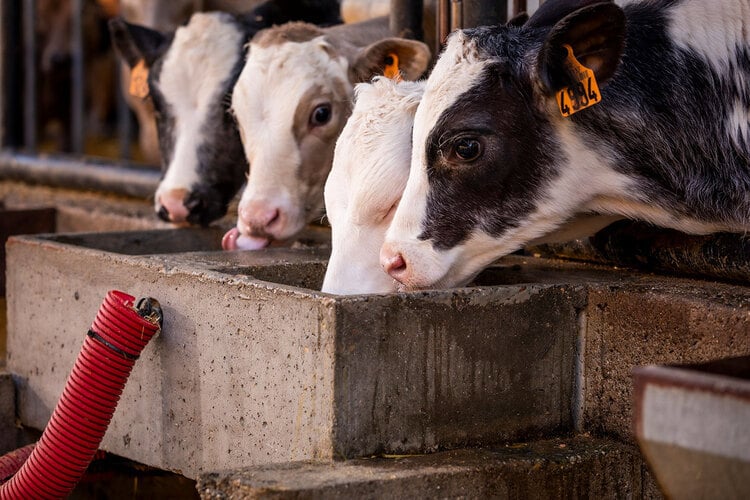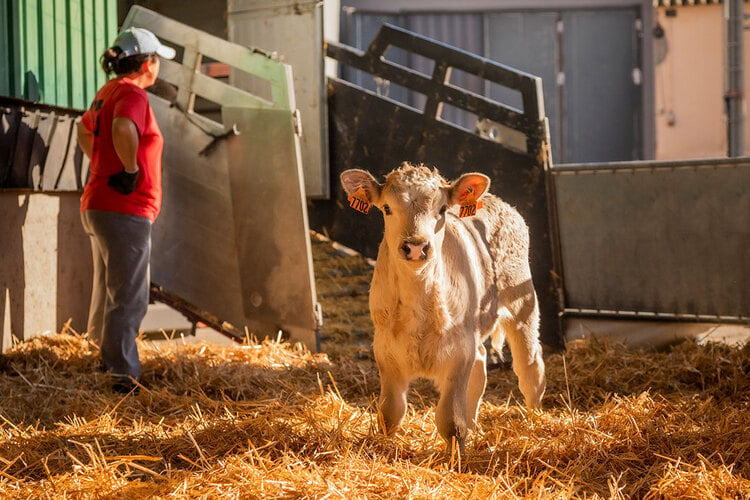
- LifeStart
- Lactobalance
- Lifestart themes
Key takeaways from the research
- If beef calves are deprived of feed, they lose large amounts of potassium while their glycogen reserves are being depleted
- Supplementation of Holstein bulls with a potassium-based electrolyte product in combination with glycerol resulted in a significant increase in water intake, reducing the risk of calf dehydration

Rehydrating beef calves after transport requires a supplement with high levels of potassium and glycerol
Feed deprivation in beef calves results in a reduction of water intake, which in term results in a decrease in potassium levels, increasing the risk that these calves become dehydrated. Feed deprivation can also lead to the depletion of body glycogen reserves. Supplementation with a hypotonic oral electrolyte solution containing the correct amounts of potassium and glycerol could potentially reduce the effects of feed deprivation. De Carvalho et al carried out a study to evaluate the effects of supplementation with a potassium-based electrolyte solution containing glycerol on the water intake of feed deprived Holstein bulls.
Materials and methods
Holstein bulls included in the study were randomly assigned to 1 of 3 groups based on initial body weight:
- Group 1: controls receiving water only (Wa)
- Group 2: water supplemented with potassium (Po)
- Group 3: water supplemented with potassium and glycerol (Po + Gl)
Subsequently, all 3 groups had access to water with or without supplement in combination with feed for the first 48 hours of the trial. After this initial period of 48 hours, they were deprived of feed for the next 24 hours, while still having access to water with or without supplements.
Results
Water intake dropped in all three groups, but water intake in the group of beef calves supplemented with potassium only was significantly higher compared to intake of the controls only receiving water. Adding glycerol resulted in a further increase in water intake, but this difference was only significant on day 1 (see table 1).
|
|
Wa |
Po |
Po + GI |
P-value Po vs. Wa |
P-value Po + GI vs. Po |
| Day 1, kg | 37.9 | 40.9 | 48.0 | 0.019 | 0.026 |
| Day 1, % of BW | 8.42% | 9.02% | 10.54% | 0.021 | 0.025 |
| Day 2, kg | 26.5 | 34.6 | 34.3 | 0.008 | 0.936 |
| Day 2, % of BW | 5.89% | 7.64% | 7.54% | 0.010 | 0.874 |
| Day 3, kg | 12.2 | 19.3 | 22.7 | 0.001 | 0.158 |
| Day 3, % of BW | 2.72% | 4.27% | 4.27% | 0.001 | 0.166 |
Table 1, water intake in kg or expressed as a percentage of body weight in beef calves having their water supplemented with potassium or with potassium and glycerol vs. controls only receiving water.
Conclusion
A potassium-based hypotonic electrolyte solution and a potassium-based hypotonic electrolyte solution with glycerol added to it both increased water intake in feed deprived beef calves, potentially reducing the risk they become dehydrated. Work carried out by the same researcher[1], as well as trials carried out on commercial farms with the same supplement have shown that the increase in water intake found after feeding this supplement before or after long periods of transport will result in an increase in feed intake, an improvement of growth and a reduction of mortality.
References
[1] de Carvalho, I.P.C. and J. Martín-Tereso, 2017, Electrolyte and glycerol solution supply to feed deprived bulls before slaughter, Proceedings of the annual congress of the EAAP, Tallin, 68: 384.






